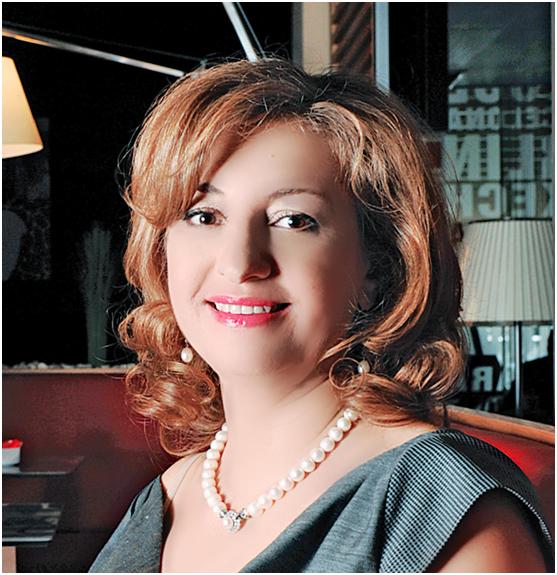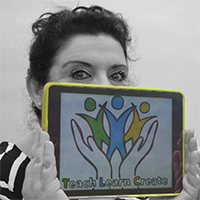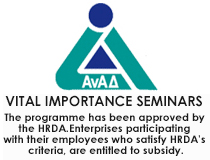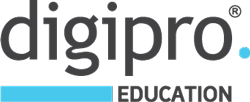Managing Innovative Well-Balanced Hybrid Solutions with Learning Engineering. Junior, Middle, and High Schools

Instructors
-
 Chryso ChristodoulouCEO - Founder
Chryso ChristodoulouCEO - FounderMrs. Chryso Christodoulou is the founder of FUNecole® Research Institute and the co-founder of Digipro Education Limited. Her academic background is in Computer Science and Education. She is the designer and author of the FUNecole® for Cambridge ICT Starters Initial Steps endorsed by University of Cambridge International Examinations and recognized best practice educational approach by the European Commission. Mrs. Christodoulou is an external educational expert for the Institute of Prospective Technological Studies (IPTS) on various educational research projects. She is a program committee member for the Institute of Electrical and Electronics Engineers’ (IEEE) Computer society. Mrs. Christodoulou participates as keynote speaker and panelist at numerous conferences, seminars and workshops around the world. Mrs. Christodoulou´s work has been published in scholarly and policy publications, such as IEEE Xplore and the European Parliament Magazine. She is a recognized as an entrepreneurship expert by OECD and is one of 350 European Ambassadors of Entrepreneurship.
-
 Nina JacksonIndependent Thinker, Author, Associate Director ITLWorldwide Mental Health Ambassador & creator of Mind Medicine approach
Nina JacksonIndependent Thinker, Author, Associate Director ITLWorldwide Mental Health Ambassador & creator of Mind Medicine approachNina Jackson is the director of Teach Learn Create that offers teacher professional development courses in UK and the world. The courses focus to develop teachers to purposeful and effectively use technology and particularly mobile devices in the classroom.
Nina is a new generation of innovative teachers and the the first woman to join Independent Thinking Ltd with Ian Gilbert in 1999. Nina inspires and motivates teachers to “be the best that they can be” and uses the Independent Thinking’s motto of ‘Do things no one does or do things everyone does in a way no one does’, as her philosophy for educational change. With this heritage of superb teaching and learning, an associate director of the internationally acclaimed Independent Thinking and best-selling author;Nina Jackson is an educational force to be reckoned with.
Nina has been a lead contributor in a BBC documentary called Kids Behaving Badly where her skills for engaging and inspiring disaffected learners were hailed as “pure magic”.

Date
- Apr 05 - 09 2021
- Expired!
Cost
- Fully Subsidized
Location
Educators having accomplished effective online teaching, stop there. They don’t develop a practice of introspection and methodical experimentation to continuously improve. While they may have learned to be better educators during their transition to online, they often do not learn how to be better learners.
One reason may be that nobody has told them that this is something they can or should be doing. Learning Engineering focuses on continuous learning improvement of teaching practices with the involvement of Technology. Educators can use Learning Engineering to draw student evidence-based information and performance development and apply the results to create reliable, data-rich and technology enhanced learning environments.
The term “Learning Engineering” was coined more than 50 years ago by Herbert A. Simon, an expert on Artificial Intelligence, and academics at Carnegie Mellon University who saw the need to apply technical competencies to learning. Today, Simon’s prescient vision is evident in an emerging manifestation of Learning Engineering that can be framed as the application of engineering design methodologies in developing learning technologies and infrastructures to support learners and learning. Learning Engineering recognizes that the development of new tools and architectures can advance learning practices. A significant effort to codify learning engineering and support the development of learning is currently under way under the auspices of the IEEE IC Industry Consortium on Learning Engineering (ICICLE).
When the COVID-19 outbreak struck at the end of 2019, very few educators, school leaders or education ministers foresaw a localized disease as likely to disrupt the operations of their own schools, nor that its impact could be so wide ranging. However, a few months down the road this localized (China) outbreak has turned into a global pandemic, with many governments around the world “locking down” their populations and closing schools in an attempt to contain the spread of the virus. As of 3 May 2020, the UNESCO Institute for Statistics reported country-wide school closures in 182 countries, impacting nearly 1.3 billion students worldwide.
COVID-19 has sparked a global education crisis, and highlighted the need for continued innovation in how online and blended education can support effective learning. Learning engineering is an emerging discipline that seeks to design learning systems that aim to improve educational outcomes by leveraging computing and data to dramatically increase the effectiveness of learning science as a discipline.
How Learning Engineering contributes to the “Model of Expertise”?
Most educators have some internalized idea of how they will know if their students are becoming experts in the subject being taught, as well as what is required to help them achieve that expertise. But relatively few of them articulate explicitly their ideas in ways that they can assess and prove the learning value.
This learning value is what is at the heart of Learning Engineering. Educators need to be clear about what skills they are teaching, and how students learn and assess the elevation to higher levels of thinking as well the learning value. How does a student learn to interpret a poem? Solve a linear equation? Determine a company’s valuation? If we can’t provide testable and falsifiable answers to these questions, then we have a sharp limit on how much we can improve our teaching. Specifically, we can only improve our teaching to the degree that our initial ideas about how students learn to become “expert thinkers” are correct.
At a moment many of our assumptions about learning are being put to the test, many of the teaching practices are changing during the pandemic therefore it seems like a good time to use Learning Engineering enhanced methodologies.
Managing Educator’s Mental Wellness as Part of the Learning Engineering Journey
On the other hand, we are living in a challenging world where developing our innate skills to become ‘Learning Engineers’ for the future development of humanity and the impact of cognitive and digital ‘load’ can be both effective and ineffective when developing these skills, having a long term neurological, cognitive and emotional impact on our health if we do not know how to manage ‘Learning and Wellness’.
The neurological and cognitive issues of stress, screen-time fatigue, digital immersion and the effects of ‘cyber sickness’ through the unmanageable use of digital interaction can have a massive effect on the human brain. Therefore, it is crucial to focus on understanding both the neurological and cognitive impact of emotional stress and digital un-management on our brains and create self-care plans for our mental wellness as part of our Learning Engineering journey.
This seminar will offer valuable insight to school principals/managers, educational curriculum consultants and master trainers of private High School and Lyceums as well all other private educational Institutions approved by Ministry of Education and Culture and/or by HRDA. All above schools need to transform and develop further their educational practices.
This expert educator professional development workshop aims to provide and support participants the following types of knowledge, skills and attitude-related objectives:
Knowledge-related objectives
- Outline how COVID-19 sparked a global education crisis, the need for continued educational innovation.
- Analyze how learning engineering (as an emerging discipline) seeks to design learning systems that aim to improve educational outcomes.
- List the skills taught in class and how students learned those skills.
- Recognize the neurological and cognitive impact of emotional stress and digital un-management on our brains.
- Evaluate how stress and anxiety can be good as well as very bad for learning systems
Skills-related objectives (Be able to)
- Use Learning Engineering to design effective online and hybrid lessons that support effective learning experiences.
- Organize Learning Engineering practices to establish continuous learning improvement of technology enhanced teaching and learning.
- Use Learning Engineering to draw student evidence-based information and performance development to higher thinking skills.
- Collect student performance results to design reliable, and agile data-rich learning environments.
- Demonstrate self-care plan for educators’ mental wellness as part of their personal Learning Engineering journey.
- Address the prevention and intervention methods to enhance your work and emotional wellbeing.
- Demonstrate how they (educators) can control the effects of stress and anxiety triggers on their brains and bodies.
- Master the ‘The Five Ways to Wellbeing’ as part of their work and life ethics
Attitude-related objectives
- Accept that COVID-19 has sparked a global education crisis, and highlighted the need for continued innovation in how online and blended education can support effective learning.
- Model introspection and methodical experimentation practices to continuously improve conventional or online teaching and learning
- Accept that they may have learned to be better educators during their transition to online, they need to learn how to be better learners.
- Evaluate neuroscience, the brain and body and the neurological chemicals that stimulate their thinking processes which affect their mental wellbeing.
- Choose the appropriate digital tools that can help them navigate their mental wellness and analogue systems.
In-house seminar objectives:
Ideas, pedagogical methods, tools and recourses demonstrated during the two workshop days will be used to assist with the individual progress of participating schools and workshop participants. In-house training by workshop Instructors will focus on discussing in more detail how tinkering computational thinking can be used to inspire and engage students to pursue aspirations, investigate problems, design solutions and chase curiosities. Therefore, workshop participants will be able to:
- Set processes for continuous improvement of class instruction and school change.
- Transform existing classroom practices to facilitate self-directed, well balanced learning environments.
- Create performances for meaningful and well-balanced personalities.
- Define ways to measure and evaluate learning outcomes.
- Set policies to accommodate all student needs and curriculum requirements.
Day 1 07:30 – 08:00 | Introduction and outlining objectives of the seminar. |
08:00 -09:30 | Learning Engineering: The History and Promise
Case Study 1: Learning Engineering: The Intersection of Technology and the Science of Learning. Presentation of case studies about how educators view the different aspects of the engineering processes. Case Study 2: Challenging the Learning Dynamics Presentation of different ways they can integrate pedagogy and instructional recourses for developing effective and engaging learning environments. |
09:30-09:45 | Break |
09:45 -11:45 | Although there are a lot of success stories clearly demonstrate the promise of learning engineering, there is still a long way to go. A big reason is that what works for one subject area or one student population will likely not be generalizable. Strategies that improve learning in high school algebra class may not work for college-level data science or middle school civics. Learning by Scientific Design
Participants access the seminar blog for getting involved with Parallel projects about Learning Engineering Practices. There will be available six different projects to choose from by six different groups of participants. Project presentation by participants. |
Day 2 07:30-9:30
| Recapitulation of the first day Learning Engineering and Wellness.
Research Findings and Case Studies will be shared in line with appropriate tasks for delegates about the:
|
09:30-9:45 | Break |
9:45-10:45
| Personal Learning Wellness
Case Study: Address Self Care and Learning Engineering Systems Learning how to address self-care and manage Learning Engineering systems so that mental wellbeing is sound and cohesive when working under pressure online. This session’s conclusion:
|
10:45-11:00 | Break |
11:00-13:00 | 1. From Learning Engineering to the Development of Robust Learning solutions. Case study:
Case study: Demonstration of online solutions that integrate Learning Engineering and mental wellness clearly demonstrating improved teaching practices that inspire students to develop: a) 21st Century Skills: Involves the nourishment of Entrepreneurial Skills that encourage students to “see” the wider picture, pinpoint on opportunities, take risks, collaborate and make connections while solving problems. b) Expert Thinking skills: Enables the development of expert piano players (for example) when they can play unknown piano pieces and compose their own music! Become expert readers when they read, comprehend and evaluate unknown documents. c) Computer Science Skills: Leads towards the development of Computational, Algorithmic, Design Thinking, Artificial Intelligence, Robotics and Coding skills during problem solving. d) Digital Literacy Skills: Facilitates the usage of common Applications for a purpose (e.g. video animation, Digital Storytelling, Web Design and Computer Networks) to enact problem solving using both critical and creative thinking skills. e) Social Emotional Learning skills: Enhances students their self-awareness, confidence, and decision making over a comprehensive curriculum. |
Day 3 7:30-9:30 | Recapitulation of the previous day Effective digital tools to help you navigate your own mental wellness.
Case study: Stress, Anxiety, Depression, Cyber Sickness, Physical and Emotional Stressors and distresses, attachments and obsessive behaviors with technology. Group work: Think, Digest, Consolidate, Create and Present. Discuss interwove and design a presentation of ‘Learning Wellness Action Plan’ for initially for their group as well as themselves after understanding the neurological and cognitive impact of mental ‘unwellness’. Presentation of group projects. |
9:30-9:45 | break |
9:45-11:45 | The “Right” Learning Mix
Practical Work 2: Parallel Workgroups by participants.
|
11:45-12:00 | Break |
12:00-13:00 | Participant Presentations.
|
The event is finished.
Terms and Conditions
The above seminar is fully subsidized by HRDA on the condition that the following criteria is stringently adhered to:
1. Cameras and microphones must be open for the duration of the seminar.
2. Participation for the whole seminar must exceed 75%.
3. 1 device per person must be used.
4. You must ensure you check in punctually at the beginning of the seminar and check out at the end of each day.
5. You are obligated to participate in the follow up onsite 4 Hour visit and you must ensure you check in and check out promptly.
In the event the criteria is not fulfilled satisfactorily and you are rejected by HRDA, please note that you as an individual or your company will be liable to pay the participation fee of €1800.
Finally, please see our cancellation policy:
– Cancellations can be accepted up to 5 working days prior to the seminar without penalties. For any cancellations received after the deadline (or no-shows), the individual or company will be invoiced the full amount per participant.
– Substitutions can be accepted up to 2 working days prior to the seminar without penalties.

